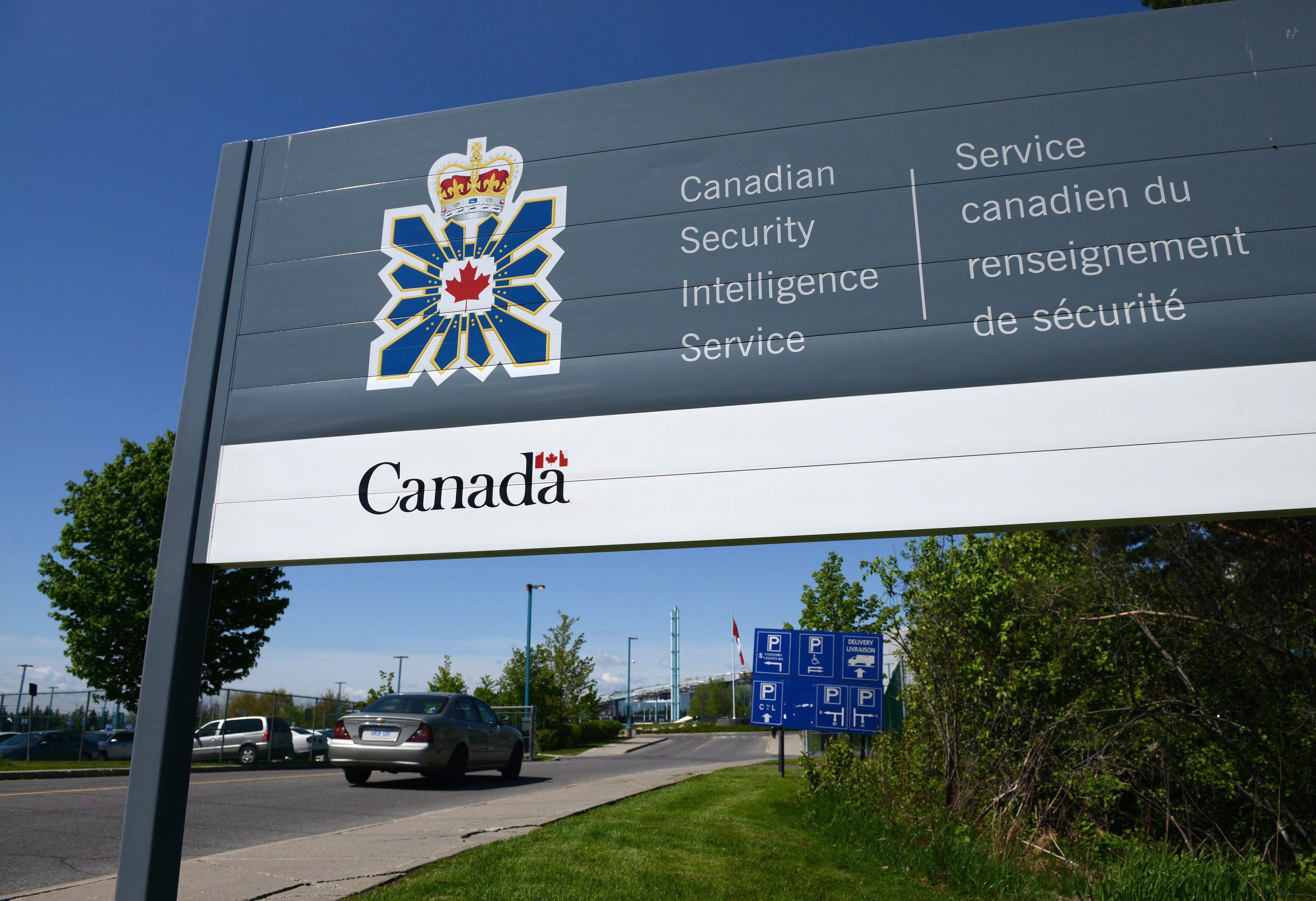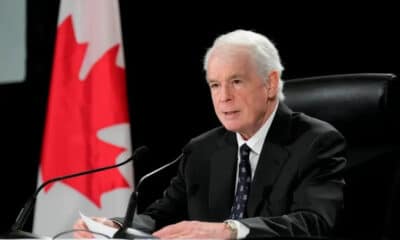Election News
Justin Trudeau Accused of Lying Over Election Interference By China
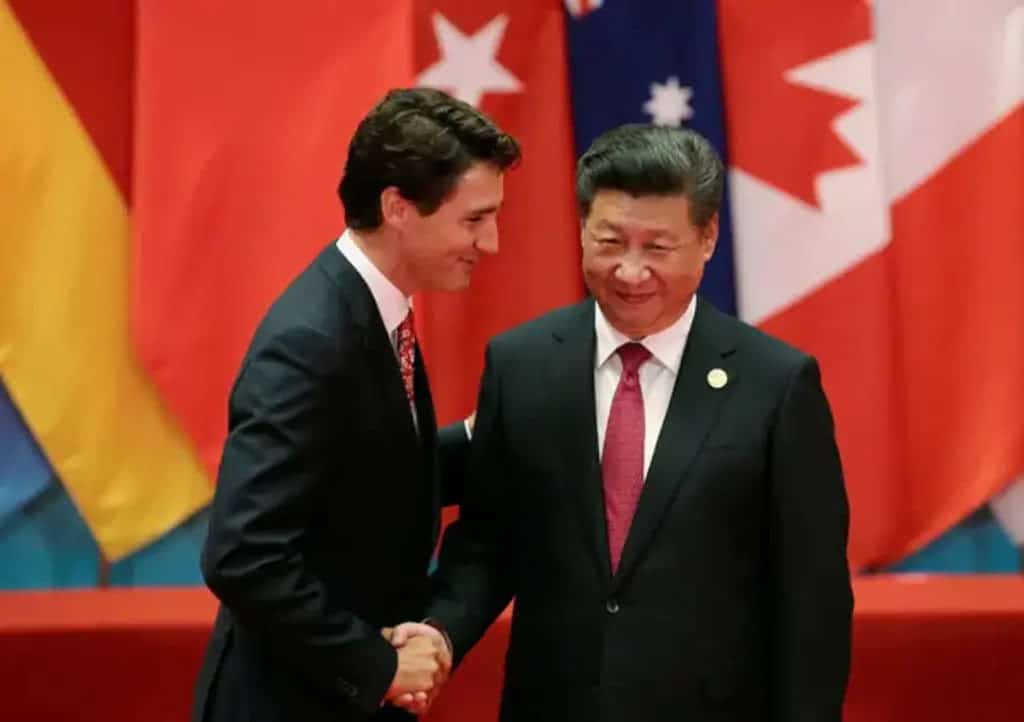
Following a revelation in the Globe and Mail detailing Beijing’s efforts, Justin Trudeau, the prime minister of Canada, has been accused of concealing information that China meddled in the 2021 Canadian elections.
Because Beijing’s efforts were intended to aid the Liberals, Pierre Poilievre, the leader of the populist Conservative opposition, has accused Justin Trudeau of lying about China’s meddling in the most recent federal election.
According to a Friday article in The Globe and Mail, China wanted to assure a Liberal minority government and the defeat of numerous Conservative candidates in the 2021 federal election, according to secret and top-secret documents from the Canadian Security Intelligence Service (CSIS).
According to a Chinese ambassador mentioned in the classified CSIS materials obtained by The Globe and Mail, Beijing enjoys it when Canadian political parties clash. Beijing also prefers minority governments since majority governments may “simply” pass laws that “do not favor” China’s communist rule.
According to the article, Chinese diplomats are responsible for unreported cash contributions to political campaigns and coordinate the hiring of foreign Chinese students by company owners so that they can work as volunteers in electoral campaigns.
According to the reports in the Globe article, a former Chinese consul-general in Vancouver boasted about her involvement in the defeat of two Tory MPs.
A Chinese official “trying to take credit for things that might happen is not something that would be unseen in diplomatic circles around the world,” Trudeau said, dismissing her boasting.
Poilievre said on Friday that he finds it difficult to imagine that Prime Minister Justin Trudeau was unaware of the conclusions reached by the Canadian Security Intelligence Agency.
At a press conference, Poilievre stated, “Justin Trudeau knew about this meddling, and he covered it up because he benefited from it.”
He said senior government officials and Canada’s partners in the Five Eyes intelligence alliance—Australia, New Zealand, the United Kingdom, and the United States—had access to the CSIS documents. German and French spies also received some of the intelligence.
“Canada Security Intelligence Agency CSIS writing a complete report and sharing it with foreign governments without really informing our own Prime Minister is it believable?
Is it possible that the several reports regarding this that were generated over the past four years were never presented to the Prime Minister of Canada before they were leaked by brave whistleblowers working for our intelligence agency?
“As long as they’re helping him,” Poilievre added, “he’s perfectly willing to let a foreign, totalitarian regime participate in our elections.”
According to Pierre Poilievre, China’s meddling in the 2021 election shows that Canada needs a public registry for representatives of “foreign authoritarian governments who influence or control” Canadian politics.
The “foreign agents registration legislation,” which would require people and businesses hired to operate on behalf of foreign governments to register their activities with the federal government, was one of the election 2021 promises made by the Conservatives, led by O’Toole.
According to Poilievre, Trudeau has appeared to keep this matter at a distance, expressing trust in an electoral integrity body led by senior government officials to uphold the fairness of Canadian elections.
Trudeau defended the measures made by his administration to thwart outside intervention, saying that this is not a surprise.
“China is attempting to meddle in our democracy and the affairs of our nation, including the elections, I have been saying for years, including on the floor of the House of Commons.
When questioned about the Globe report on February 17, he responded, “We are aware of this.
On February 17, several Conservative and Bloc Québécois MPs brought up the subject in Parliament, and others criticized the Justin Trudeau Liberal government’s lack of action and transparency about China’s intervention in Canadian territory on social media.
Election News
Election Week in India Sparks Violence and Hate Speech
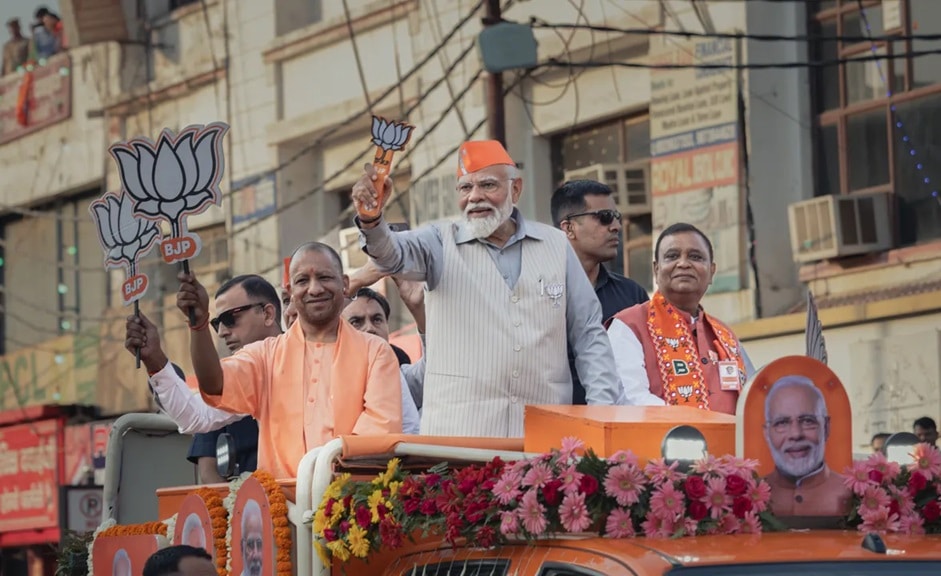
It is not Election Day in India; rather, it is Election Week. Plural. CNBC reported that voters in “the world’s largest democratic election” began voting last Friday, marking the first of seven phases of voting that will take place over six weeks.
There are unlikely to be many shocks at the end of that marathon: Prime Minister Narendra Modi and his Hindu-nationalist Bharatiya Janata Party (BJP) are predicted to win “another landslide victory,” giving Modi a third five-year term in office.
That does not imply that the campaign has been uneventful. The New York Times reported that “armed men attacked polling stations and captured voting booths” in the state of Manipur, forcing authorities to rerun early voting.
Modi faced accusations of “hate speech” late in the campaign, CNN said, after telling a Hindu audience that Muslim opponents provide “your hard-earned money” to “infiltrators.”
Following the election, there were numerous AI-generated deepfake videos featuring Bollywood actors condemning Modi.
Speaking at a general election rally, India’s prime leader labeled Muslims as ‘infiltrators’ who ‘have the most children.’ He did not name them.
The mask did not take long to fall off. Two days after polling opened for the legislative elections, which will culminate on June 1, Narendra Modi, who is driving the campaign for his party, went on an openly Islamophobic rant.
Muslims in India
On Sunday, April 21, at a rally in Rajasthan’s tribal district of Bhanswara, the Indian prime minister insulted and vilified Muslims without mentioning them.
He accused the Congress, the main opposition party, of attempting to transfer national riches “to those who have the most children, the infiltrators,” adding that his predecessor, Manmohan Singh, had declared that Muslims had “the first right to the nation’s resources.”
“That means they will collect all of your wealth and distribute it to who? – To those with the most children. They will spread it among the infiltrators.
Do you think your hard-earned money should go to the infiltrators? Do you approve of that?” He challenged the audience to applaud.
His comments recalled an ancient cry of Hindu nationalists and a doctrine they established, the Great Replacement doctrine, also known as “love jihad.”
His party, the Bharatiya Janata Party (BJP), claims that Muslims, who number over 200 million people in India, constitute a demographic threat to Hindus by producing children and overtaking Hindus demographically.
They seduce Hindu ladies with the sole purpose of converting them.
Muslims and Christians
Since Modi took office in 2014, numerous BJP-ruled states have introduced anti-conversion laws, stigmatizing and threatening religious minorities such as Muslims and Christians, whose members can face imprisonment for just wanting to convert Hindus.
The Rashtriya Swayamsevak Sangh (RSS), the BJP’s largest far-right organization, has declared Muslims to be national foes. From 1940 onwards, it was directed by Golwalkar, who was inspired by Adolf Hitler and saw Nazi Germany as an example of racial pride.
Modi praised this important individual, who stated that minorities should be handled in the same way that the Nazis treated Jews. Christians and Muslims posed internal threats to this supporter of a Hindu India.
The prime minister’s statements, which are typically more cautious, triggered a surge of outrage.
On Monday, the Congress referred the case to the electoral commission, seeking for sanctions against “blatant targeting,” “divisive, reprehensible, and malicious,” of “a particular religious community.” The electoral code prohibits inciting communitarian attitudes.
However, the government now controls this independent organization, which is in charge of ensuring that elections go smoothly and that the code of conduct is followed. In March, the administration selected two election commissioners with ties to the BJP.
Election News
How Will Latino Vote in the 2024 Election
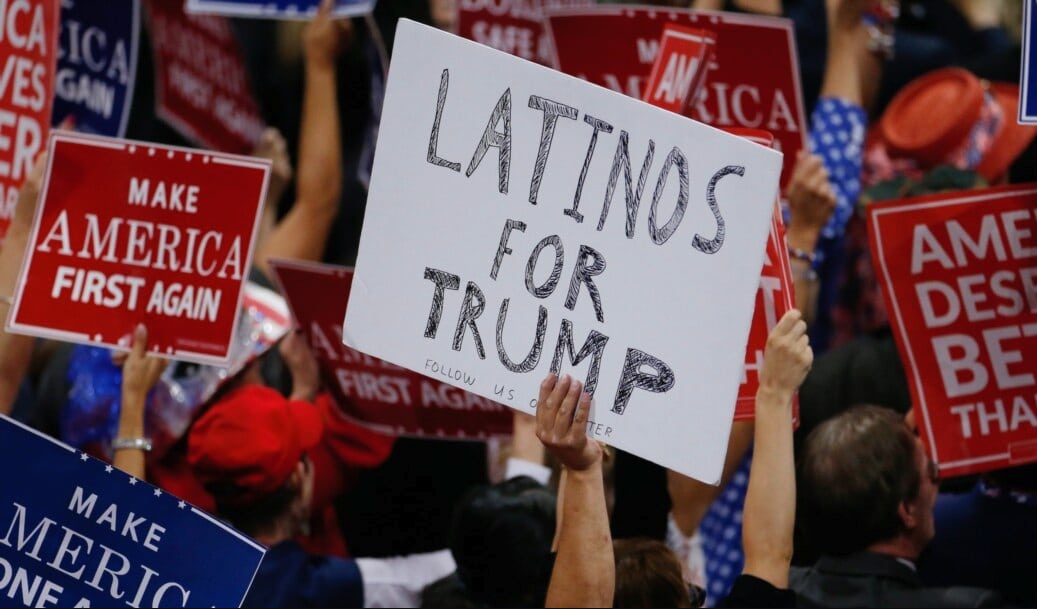
According to Clarissa Martínez-de-Castro, vice president of UnidosUS’s Latino Vote Initiative, Latino voters will play a “decisive role” in the 2024 presidential election.
Martínez-de-Castro suggested that their impact is likely to be enhanced because they are “geographically concentrated” in both battleground states and states with a lot of Electoral College votes, with roughly 25% participating in their first presidential election.
According to recent polls, the race between Joe Biden and Donald Trump, the Democratic and Republican presumed presidential nominees, is tight. A Marist National Poll of 1,192 registered voters conducted in mid-April gave Biden a three-point lead in a head-to-head matchup, with 51% of the vote against Trump’s 48%. However, a Public Opinion Strategies poll for NBC News done during the same time period found Trump at 46% to Biden’s 44%.
Martínez-de-Castro told Newsweek that Latinos will play a significant role in the 2024 election. They play a vital role in the winning formula for the White House, Congressional balance of power, and several state and municipal elections.
“Latinos are geographically concentrated in states with a high number of primary delegates and Electoral College votes (California, Florida, New York, and Texas), electoral battlegrounds (Arizona and Nevada), or both. Furthermore, given razor-thin margins of victory, even in battleground states with lower Latino populations—such as Georgia, Pennsylvania, and Wisconsin—these voters have the potential to change the outcome.”
According to figures gathered by UnidosUS, 31.2 million Hispanic Americans of voting age participated in the 2022 midterm elections, with 18 million registered to vote and 11.8 million casting ballots.
Latino voter registration for 2024 Election
Martínez-de-Castro noted that expanding Latino voter registration might significantly impact the 2024 election race. He stated that it is common for Latinos to report that no one had approached them about voting or urged them to register.
She said, “Building on the fact that more than 80% of Latino registered voters vote in presidential elections (88 percent in 2020), a critical opportunity is addressing the registration gap, which is 13 million and growing.”
“Yet, underinvestment and ineffective outreach to these people continue, exacerbated by incorrect perceptions about this constituency. Much of the work to reduce the registration gap has been left to nonpartisan, nonprofit organizations, who have received little money, especially when contrasted to the expenditures seen during each election cycle.”
UnidosUS commissioned BSP Research to conduct a poll of 3,037 eligible Latino voters in the United States from November 2 to 13, 2023.
According to the survey, 47 percent approved of Biden’s performance as president, while 44 percent disagreed and nine percent said “don’t know.”
In all, 48 percent said they felt the Democrats “cared a great deal” about the Latino population, while 41 percent said they “don’t care much” and 11 percent called them “hostile.”
In comparison, only 25% thought Republicans “care a great deal” about Latinos, while 48% said they “don’t care much” and 26% saw them as “hostile.”
Hispanic Voters Shifting Away from Democrats
According to current research, Hispanic voters, defined as individuals having origins in a Spanish-speaking country and the majority of whom are Latino, are shifting away from the Democratic Party.
For example, a recent American Principles Project/On Message study of Hispanic voters in Arizona and Nevada found Trump and Biden tied with 43 percent and 44 percent, respectively.
Martínez-de-Castro acknowledged “erosion” in Latino support for the Democrats, but disputed media accounts that exaggerated the trend.
She stated, “Generally, at the presidential level, Latino voter support has averaged about two-thirds for Democrats and one-third for Republicans.” The combined average of all available election-eve and exit poll data from 1988 to 2020 is 29 percent Republican support and 67 percent Democratic support.
“The top point for Republicans was George W. Bush in 2000 (40 percent), whereas for Democrats, depending on the polling source, Bill Clinton, Barack Obama, or Hillary Clinton all received more than 70 percent. Democrats gained much of the Latino support that Republicans lost over the last decade. But Democrats did not solidify that support in their column, so Republicans are regaining some of those votes.”
Martínez-de-Castro stated that a November 2023 UnidosUS poll revealed that Latino voters prioritize a well-managed immigration system with border security.
“Where immigration is concerned, the top priorities for action for Latino voters are relief for the long-residing undocumented population and for Dreamers/DACA (Deferred Action for Childhood Arrivals) recipients,” she said in a statement.
On the central subject of abortion, the UnidosUS poll revealed that 71% of Latino voters either strongly or somewhat agreed with the statement that “no matter what my personal beliefs about abortion are, I think it is wrong to make abortion illegal and take that choice away from everyone else.”
Source: Newsweek
Election News
As 2024 Election Nears US Allies Preparing for Trump 2.0
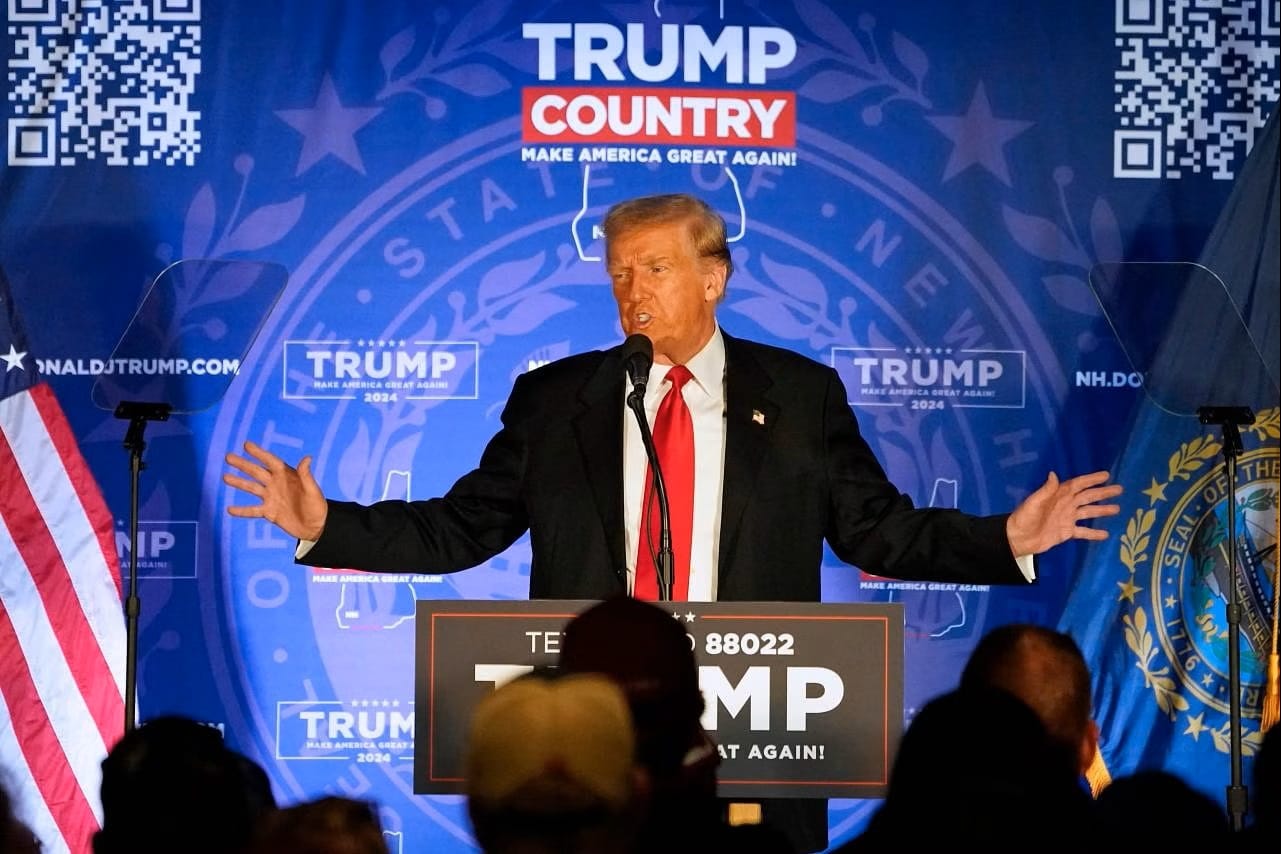
“Trump 2.0” refers to former President Donald Trump’s anticipated second presidential term in 2024. After serving a single term from 2017 until 2021. Trump is on track to win the 2024 election and become a two-term president.
His followers are rallying around the “Trump 2-0” slogan, seeing it as an opportunity to further his “America First” agenda.
Now, America’s friends are bracing for a Trump 2.0 presidency, while incumbent President Biden’s popularity is plummeting in polls. Since his first presidential campaign in 2015, Donald Trump has held the highest national advantage in a New York Times poll.
Now Germany is undertaking a charm drive within the Republican party. Japan is preparing its own Trump whisperer. Mexican government officials are speaking with Camp Trump. Australia is also enacting legislation to help Trump-proof its defense ties with the United States.
Everywhere, US allies are taking efforts to defend or enhance their interests in the event that former President Donald Trump retakes power in the November elections, which has a 50-50 probability based on recent opinion polls in battleground states.
They want to avoid the icy smack that Trump’s “America First” policies handed them last time, which included trade battles, a reshuffling of security alliances, an immigration crackdown, and withdrawal from a global climate agreement.
Reuters spoke with diplomats and government officials across five continents about Trump 2.0 preparations. It revealed Mexican discussions about a new, Trump-friendly foreign minister, an Australian envoy’s role in scrambling to protect a submarine sale, and a German official’s meetings with Republican state governors.
Some foreign leaders have called Trump directly, despite the risk of irritating his Democratic presidential challenger, Joe Biden. According to a source familiar with the exchange, Saudi Arabia’s crown prince just called Trump, and Hungary’s prime minister and Poland’s president have visited with him in person in recent weeks.
British Foreign Minister David Cameron also met with Trump last month at his Florida estate. After their private dinner, he informed reporters in Washington that they addressed Ukraine, the Israel-Gaza conflict, and NATO’s future.
White House Press Secretary Declines to Comment
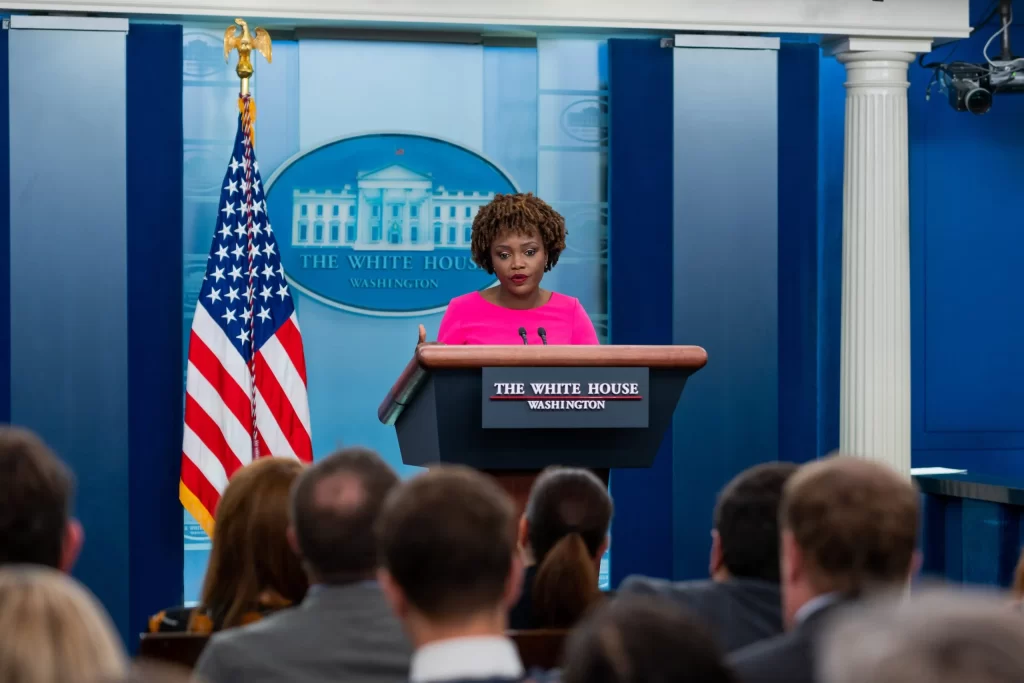
Press Briefing by Press Secretary Karine Jean-Pierre: Reuters Image
The White House directed Reuters to statements by spokesperson Karine Jean-Pierre, who claimed encounters like Cameron’s were not unusual. She declined to comment on Trump’s meeting with Orban or the Saudi conversation, which the New York Times first reported.
The Saudi government’s communications office and the Trump campaign did not reply to demands for comment regarding the call.
According to the campaign, he met with each European leader to discuss security matters, including Polish President Andrzej Duda’s suggestion that NATO nations spend at least 3% of their GDP on defense. Currently, they plan to spend 2%.
Jeremi Suri, a presidential historian at the University of Texas, said encounters between candidates and diplomats were common, but Trump’s meeting with Orban and phone contact with Saudi Arabia’s Mohammed Bin Salman were rare.
According to Trump aide Brian Hughes, international leaders’ meetings and calls show awareness of what we already know here at home.
Joe Biden is ineffective, and when President Trump takes office as the 47th President of the United States, the world will be more safe and America will prosper.”
The campaign did not comment in depth to inquiries regarding the other results in this piece, but campaign spokesperson Karoline Leavitt stated that “America’s allies are anxiously hoping that President Trump will be re-elected.”
Much of Trump’s contact has been less direct than meeting with the candidate.
Germany has been establishing connections with Trump’s Republican base at the state level, reminding party officials that the country invests considerably in American industry.
Germany Prepares for Trump 2.0

Germany Prepares for Trump 2.0: File Image
Germany is utilizing a transatlantic coordinator to prepare for Trump 2.0, keeping in mind that Trump promised harsh tariffs on Germany’s car industry while president and now intends to impose a minimum 10% tariff on all imports if reelected.
Michael Link, the coordinator, is leading what Berlin refers to as “bypass diplomacy,” which involves crisscrossing the union and targeting swing states in which Germany has a significant investment.
“It would be extremely important, if Donald Trump were re-elected, to prevent the punitive tariffs he is planning on goods from the EU,” he was quoted as saying.
He stated he had met with Republican governors from Oklahoma, Arkansas, Alabama, and Indiana. At each location, he stresses how strong trade relations support Germany’s position in the United States.
According to two Mexico-based sources, government officials have been meeting with people close to Trump on issues such as migration and the trafficking of fentanyl, a synthetic opioid, into the United States, both of which could result in increased US pressure on Mexico under another Trump administration.
Trump has stated that he would direct the Pentagon “to make appropriate use of special forces” to attack cartel leadership and infrastructure, which is unlikely to receive Mexican government approval.
The Mexican officials also talked on the North American free trade agreement, which was last revised under Trump’s presidency in 2020 and is up for review in 2026, according to sources. In recent public remarks, Trump complimented his revision of the contract.
And, in a sign of how important personal relationships are under Trump, Mexico’s ruling party is evaluating alternate candidates to install as the next foreign minister based on whether Trump or Biden appear to be the most likely winners, according to two sources familiar with the discussions.
Mexico to Hold Elections in Junes
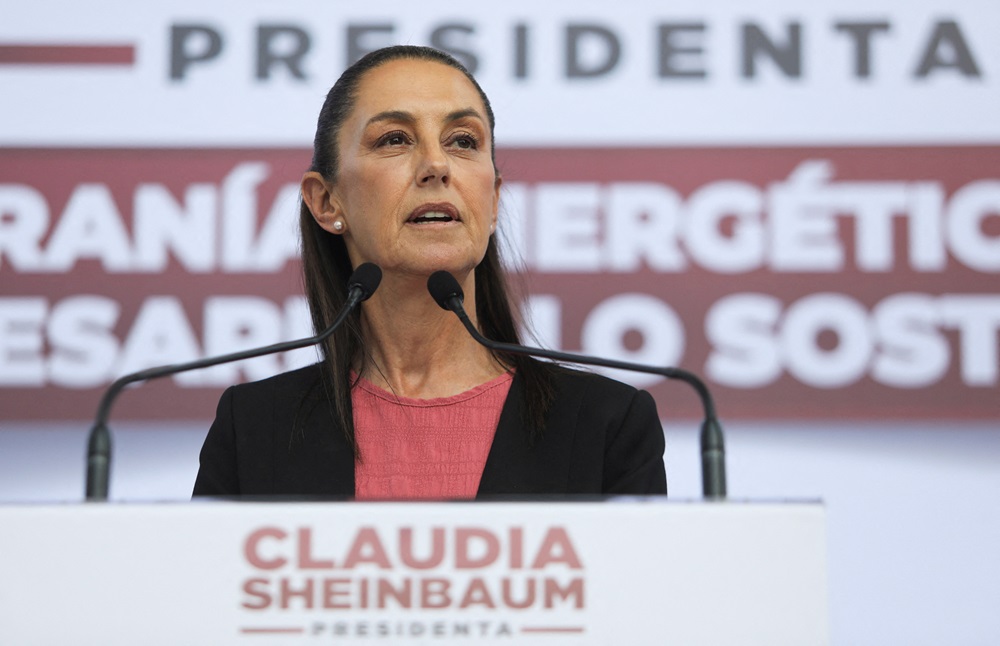
Presidential candidate of the ruling Morena party Claudia Sheinbaum: Image Reuters
Mexico has its own presidential election in June. If governing party candidate Claudia Sheinbaum wins, as expected, she will assume office in October, one month before the US election.
If Trump wins the election, she is likely to appoint Marcelo Ebrard as foreign minister, according to sources.
Ebrard served as Mexico’s foreign minister during Trump’s presidency and was widely regarded at home as having held his own in interactions with the administration.
If Biden wins, she is more likely to appoint political veteran Juan Ramon de La Fuente, according to the sources.
Sheinbaum’s campaign stated that she was not yet prepared to declare her choice. Ebrard’s spokeswoman stated that he was focusing on a Senate campaign while also supporting Sheinbaum’s presidential candidacy. De La Fuente did not return a request for comment.
To strengthen its diplomatic interaction with the Trump administration, Japan plans to send Sunao Takao, a Harvard-educated interpreter who helped former Prime Minister Shinzo Abe bond with Trump over golf games.
Taro Aso, another former prime minister of Japan, met Trump in New York on Tuesday, according to a campaign spokesman.
America’s closest friend in Asia is concerned that Trump may reignite trade protectionism and demand more money to maintain US soldiers in Japan, according to government officials.
UK Labour Party Favored to Win Next Election
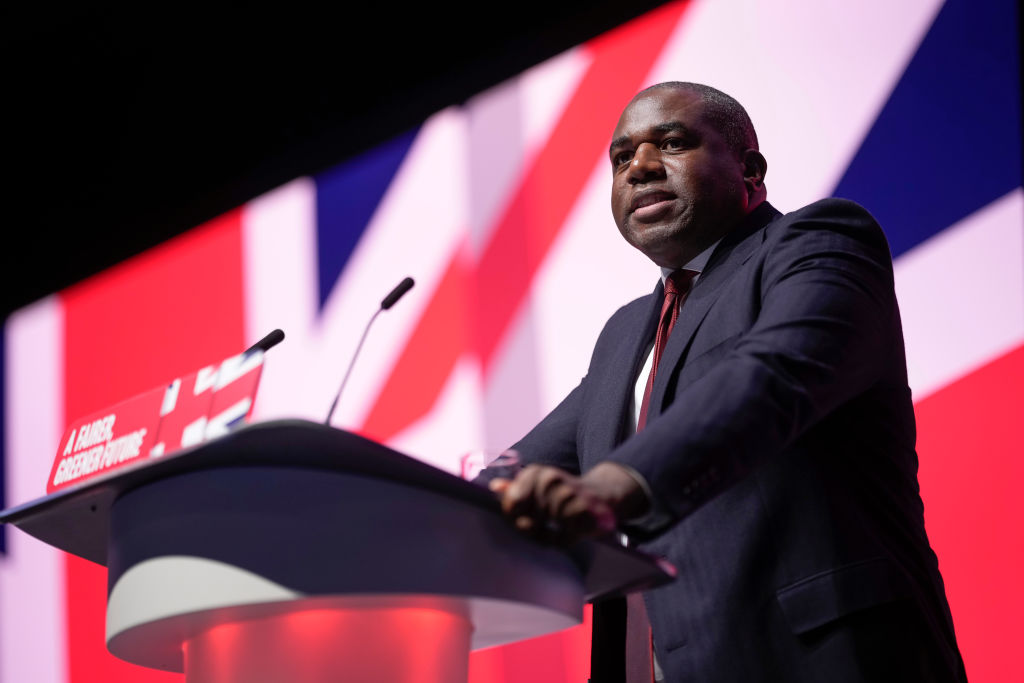
David Lammy Labour’s nominative foreign minister: Photo Getty Images
Britain’s Labour Party, which is now in opposition but is a strong favorite to win elections by the end of the year, may have a more difficult road to a positive relationship with a Trump presidency.
David Lammy, Labour’s nominative foreign minister, previously described Trump as a “woman-hating, neo-Nazi sociopath” in Time magazine. Lammy is now attempting to strengthen ties with Republicans, according to a Labour official.
Lammy has met with Republican leaders considered potential for positions in a Trump cabinet, including Mike Pompeo, Trump’s former Secretary of State, according to a Labour official.
Lammy declined an interview, but has stated that many British politicians have attacked Trump and that he will protect British interests as foreign minister regardless of who occupies the White House.
Victoria Coates, Trump’s former deputy national security advisor, warned a Labour victory may signal a rocky patch for US-UK relations if Trump wins, citing “personal vitriol” from Labour.
Australia Fears Trump Cancelling Defence Deal
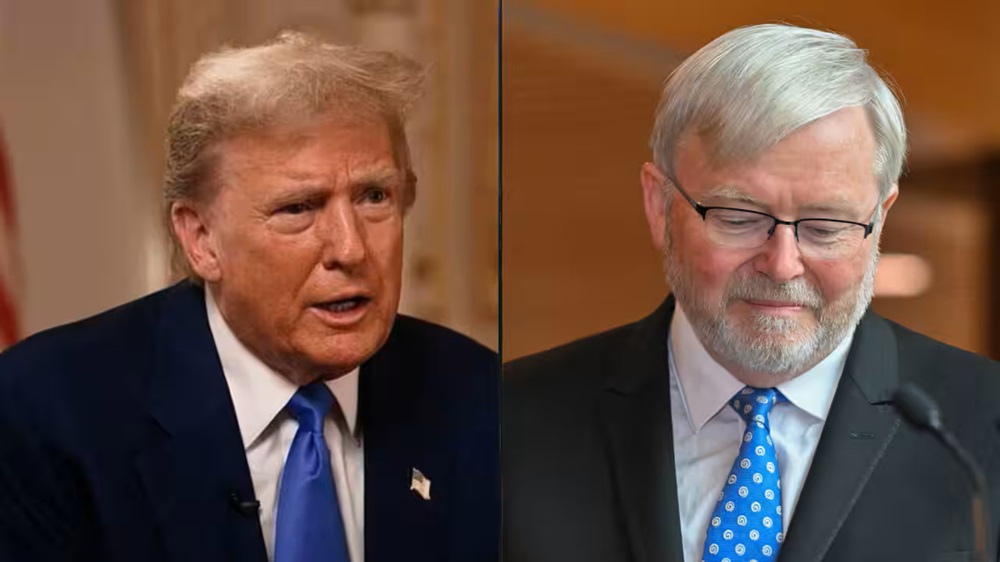
Australia’s Ambassador to the U.S. Kevin Rudd: File Image
Kevin Rudd, Australia’s U.S. ambassador, recently earned Trump’s ire for previous criticism of the former president.
In a TV interview last month, Trump stated that he had heard Rudd, an ex-prime minister, was “a little bit nasty” and that “if he’s at all hostile, he will not be there long.”
Australian Foreign Minister Penny Wong has supported Rudd, saying he would continue to serve as ambassador if Trump regained power. Behind the scenes, Rudd is attempting to prevent Trump from canceling a vital defense deal, according to an Australian diplomatic source.
The Biden administration has agreed to assist Australia in its first step toward creating a fleet of nuclear-powered submarines by selling three to five Virginia-class attack submarines.
Rudd has urged Canberra to move quickly to implement legislation that brings it closer to US arms-control standards and establishes a separate nuclear-safety council, in the expectation that it will make the sale more difficult for Trump to reverse, according to the source.
Trump’s “America First” Approach
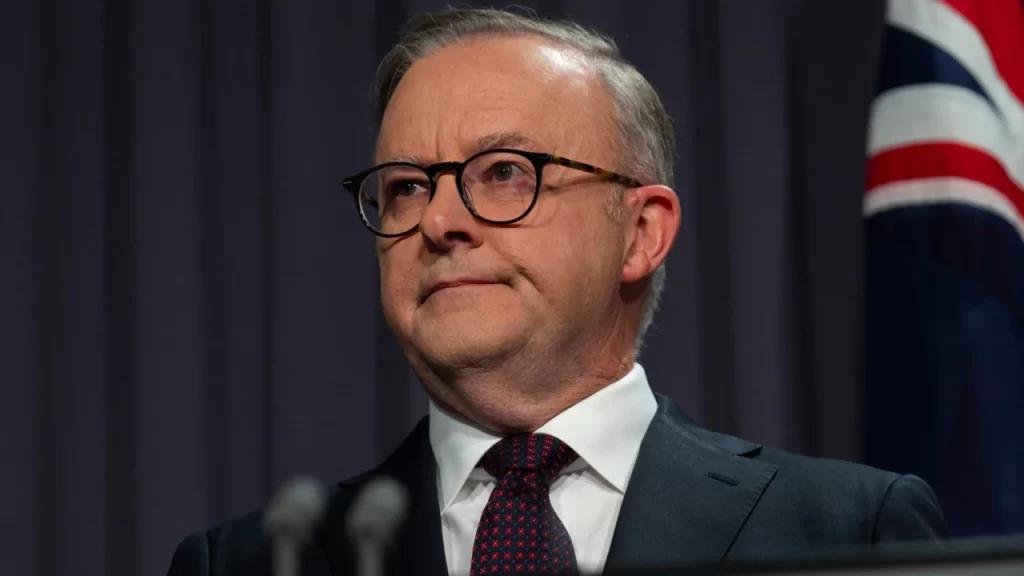
Michael Shoebridge is the Director of ASPI’s Defence: Image Reuters
The embassy declined to respond. Canberra did not immediately respond to a request for comment. According to Michael Shoebridge of Strategic Analysis Australia, Trump’s “America First” approach might potentially jeopardize the pact.
“All the levers are there for Trump to say, ‘the U.S. Navy doesn’t have enough, so Australia don’t get any’,” the defense analyst said. Lobbying is a low-key option for US allies to influence Trump, especially if they wish to remain covert.
A former South Korean government official currently working in Washington said the Biden administration was keenly monitoring foreign governments and that Seoul preferred to learn Trump’s thoughts in a “stealthy manner” through lobbying firms.
South Koreans are flocking to Washington’s lobbyist district to learn about Trump’s views on trade and investment, as well as what will happen to Biden’s Inflation Reduction Act (IRA), according to a South Korean official.
The IRA encourages manufacturing reshoring and energy transformation. Trump also supports reshoring, but not Biden’s desire to transition from fossil fuels to renewable energy.
Some US allies use Trump-linked lobbyists, such as Ballard Partners, which is led by Brian Ballard, a Florida lobbyist known for his strong ties to Trump.
Ballard’s clients include Japan and the Democratic Republic of Congo, according to the firm’s and the United States’ disclosure reports. It declined to name others.
“Many members of our firm have been longtime allies of the former president,” said Justin Sayfie, a partner at Ballard.
Japan’s foreign ministry stated that it sought advice and support from a diverse group of specialists. It declined to comment on its relationship with Ballard.
-
Celebrity5 months ago
Shane MacGowan, Lead Singer Of The Pogues And A Laureate Of Booze And Beauty, Dies At Age 65
-
Entertainment5 months ago
Robert Downey Jr. Won’t Be Returning To The Marvel Cinematic Universe As Tony Stark
-
Politics5 months ago
Former US Secretary Of State Henry Kissinger Dies Aged 100
-
Politics5 months ago
Unveiling the Power and Influence of The Conservative Treehouse
-
Celebrity5 months ago
WWE Hall Of Famer Tammy ‘Sunny’ Sytch Sentenced To 17 Years In Prison For Fatal DUI Crash
-
Sports4 months ago
Saints’ Aggressive Play-Calling Ends Up Coming Back To Hurt Them In Loss To Rams

